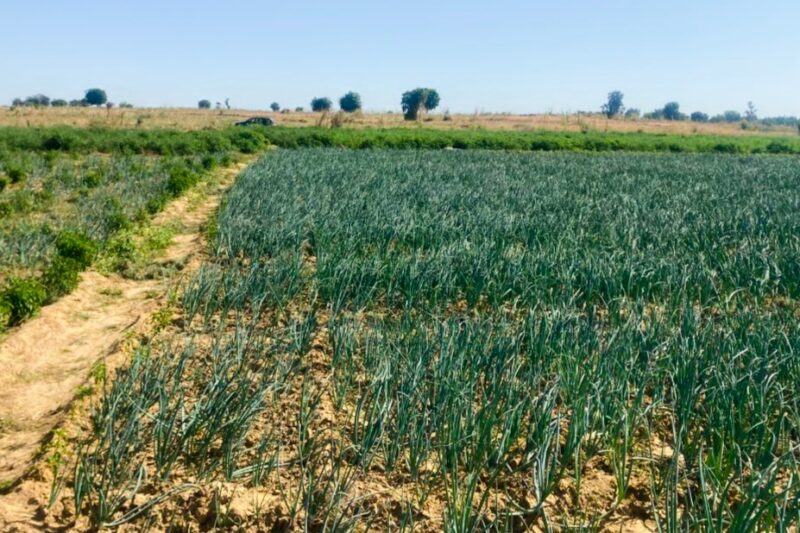Food insecurity a concern as farmers say the cost-of-living crisis is hitting them – particularly escalating fuel prices – and they can no longer keep their water pumps running.
The exorbitant cost of fuel in Nigeria is crippling irrigation farmers in Borno State, many of whom simply cannot afford to run water pumps anymore – they have decided to quit until the petrol price comes down, or they get government support.
This could affect the price of vegetables – and food insecurity in general – at a time when the cost-of-living crisis is making it almost impossible for ordinary people to buy even the staples.
Inflation was 33.9% for all items – with food inflation at 39.16% – in October.
Petrol prices have increased more than fivefold since President Bola Tinubu took office in May last year when he withdrew the fuel subsidy. In some places, a litre of petrol can cost as much as ₦2,000.
The naira continues to depreciate.
Traditionally, after seasonal farming activities end, agrarian communities in Borno State switch to irrigation methods, allowing them to produce food all year round.
But this year, many farmers in the Damboa Local Government Area of the state have decided to forgo irrigation farming because of the dire economic hardships they are experiencing.
Kawo Mohammed, a farmer in the Damboa district, told RNI that the prohibitive cost of fuel price was the one of the biggest challenges he was facing.
“I have always grown cabbages, carrots and other vegetables in large quantities. But this year, I have planted just a small number of onions. I would like to farm as usual but in this economic climate, I simply cannot afford it. The price of fuel is just too much – and it keeps rising. At the current cost, I cannot afford to keep the water pump running and without that, my crops will shrivel up and die.
“Not so long ago, we used to get one litre of fuel for ₦700 or ₦800. Now one litre of fuel costs around ₦1,200 to ₦2,000, depending on where you buy it. It is virtually impossible for most farmers to afford to buy fuel at that price.”
Mohammed Baba Tijjani said it was not just the price of petrol that was forcing farmers to quit.
“Soaring inflation and the ever-devaluing naira have resulted in huge increases in the prices of all farming inputs, such as seeds, fertiliser, pesticides, machinery and on-site tools.
“In the past I used to cultivate 300 sections of farmland with a variety of plants and vegetables, such as cassava, onions, tomato and pepper. But I am no longer active in irrigation farming because of the high costs involved.”
Babangida Abdullahi told RNI that he had been doing irrigation farming for the past 30 years.
“I am not going to be doing any irrigation farming this year. Since the removal of the fuel subsidy, we have been experiencing serious economic hardship. The cost-of-living crisis is affecting everyone. The price of all goods has increased.
“It has only got worse since the current administration came into office. Fuel prices started to escalate when the subsidy was withdrawn. Since then the prices of all goods have soared.
“The hardship is affecting agribusiness and this could bring about further food insecurity not only in Borno State but also in the whole of Nigeria. Farmers cannot afford to farm anymore because the price of every input, from seeds to machinery and everything in between, has soared.
“I have been doing irrigation farming for almost 30 years and I have never even dreamt about quitting. But this year, I quit. Either the prices have to come down – including the cost of fuel – or the Borno State government must provide better support for farmers. Those are the only options if the government wants to ensure food production,” said Tijjani.
SHETTIMA LAWAN MONGUNO









